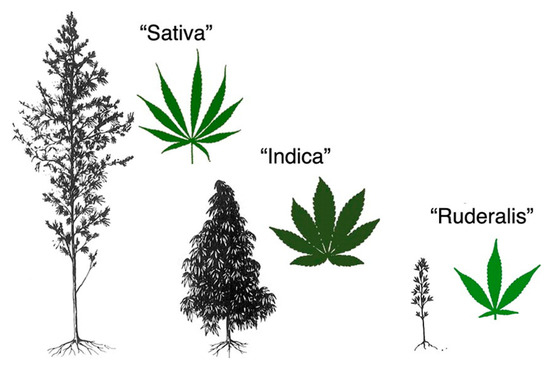 “Few models exist that can control for placebo and expectancy effects commonly observed in clinical trials measuring ‘Cannabis’ pharmacodynamics. We used the Foramen Rotundum Inflammatory Constriction Trigeminal Infraorbital Nerve injury (FRICT-ION) model to measure the effect of “full-spectrum” whole plant extracted hemp oil on chronic neuropathic pain sensitivity in mice.
“Few models exist that can control for placebo and expectancy effects commonly observed in clinical trials measuring ‘Cannabis’ pharmacodynamics. We used the Foramen Rotundum Inflammatory Constriction Trigeminal Infraorbital Nerve injury (FRICT-ION) model to measure the effect of “full-spectrum” whole plant extracted hemp oil on chronic neuropathic pain sensitivity in mice.
Results: Mechanical allodynia was alleviated within 1 h (d = 2.50, p < 0.001) with a peak reversal effect at 4 h (d = 7.21, p < 0.001) and remained significant throughout the 6 h observation window. There was no threshold change on contralateral whisker pad after hemp oil administration, demonstrating the localization of anesthetic response to affected areas.
Conclusion: Future research should focus on how whole plant extracted hemp oil affects multi-sensory and cognitive-attentional systems that process pain.
The present study shows for the first time that common, commercially available, and easily reproducible full-spectrum hemp oil induces significant anti-allodynic effects with a bell-shaped pain sensitivity effect peeking between 2 and 4 h and lasting over 6 h. The study provides evidence that phytochemical extracts of the Cannabis plant, even with relatively low levels of THC, can significantly improve mechanical pressure pain in animals with established chronic neuropathic hypersensitivity.”
https://www.mdpi.com/2075-1729/10/5/69/htm

 “While natural Δ9-tetrahidrocannabinol (Δ9THC),
“While natural Δ9-tetrahidrocannabinol (Δ9THC),  “An emerging area of preclinical research has investigated whether drug use in parents prior to conception influences drug responsivity in their offspring.
“An emerging area of preclinical research has investigated whether drug use in parents prior to conception influences drug responsivity in their offspring. “Cannabis sativa and its principal components, Δ9-tetrahydrocannabinol (Δ9-THC) and
“Cannabis sativa and its principal components, Δ9-tetrahydrocannabinol (Δ9-THC) and  “To examine acute and residual mood and cognitive performance in young adult regular
“To examine acute and residual mood and cognitive performance in young adult regular  “Cannabis sativa is an aromatic annual flowering plant with several botanical varieties, used for different purposes, like the production of fibers, the production of oil from the seeds, and especially for recreational or medical purposes.
“Cannabis sativa is an aromatic annual flowering plant with several botanical varieties, used for different purposes, like the production of fibers, the production of oil from the seeds, and especially for recreational or medical purposes.
 “Borderline Personality Disorder (BPD) is a chronic debilitating psychiatric disorder characterized mainly by emotional instability, chaotic interpersonal relationships, cognitive disturbance (e.g. dissociation and suicidal thoughts) and maladaptive behaviors. BPD has a high rate of comorbidity with other mental disorders and high burden on society.
“Borderline Personality Disorder (BPD) is a chronic debilitating psychiatric disorder characterized mainly by emotional instability, chaotic interpersonal relationships, cognitive disturbance (e.g. dissociation and suicidal thoughts) and maladaptive behaviors. BPD has a high rate of comorbidity with other mental disorders and high burden on society.
 “An increasing number of patients are turning to
“An increasing number of patients are turning to  “The pathophysiological relevance of the endocannabinoid system has been widely demonstrated in a variety of diseases including cancer, neurological disorders, and metabolic issues. Therefore, targeting the receptors and the endogenous machinery involved in this system can provide a successful therapeutic outcome.
“The pathophysiological relevance of the endocannabinoid system has been widely demonstrated in a variety of diseases including cancer, neurological disorders, and metabolic issues. Therefore, targeting the receptors and the endogenous machinery involved in this system can provide a successful therapeutic outcome.